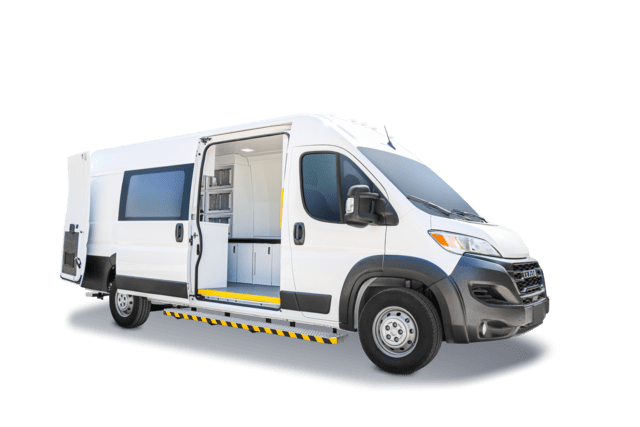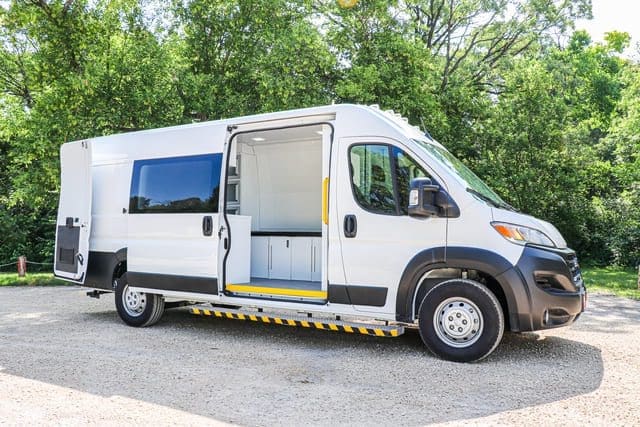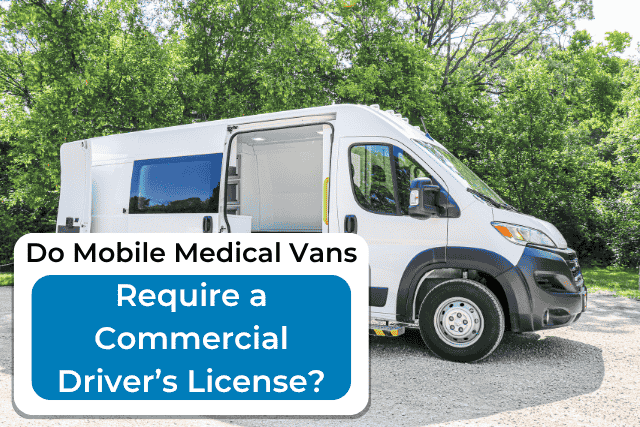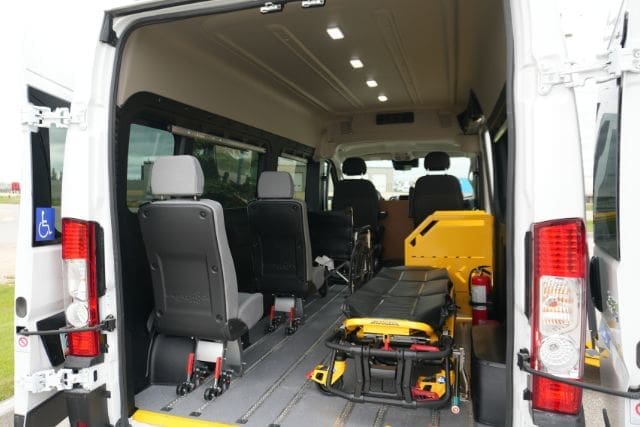Are you trying to learn how to develop partnerships for your mobile medical vehicle? Without partnerships, you’ll find that your outreach will be limited. You might also find it more difficult to find resources and funding to even get your mobile medical program off of the ground without the right partnerships.
At AVAN Mobility, we’ve developed strong partnerships with organizations just like yours over the past 10+ years in business. Our partnerships have led us to manufacture hundreds of mobile medical vehicles that are being used to reduce healthcare barriers and save lives all over the U.S.
After reading this article, we hope you’ll have a better idea of how to develop partnerships that can make a difference. The partnerships you make throughout your journey of starting a mobile medical program will strengthen your chances of success.
What are partnerships for your mobile medical vehicle?
Mobile medical vehicle partnerships are like teamwork in mobile healthcare. When your organization partners with others, it increases the impact on people’s lives. Investing in a mobile medical vehicle is a big decision. You want your investment to have the biggest impact possible, and that starts with partnerships.
Think of partnerships like making alliances with other healthcare teams, local clinics, and community members. For example, teaming up with local clinics allows people to share resources and knowledge. This leads to a stronger effort against health challenges.
Let’s take a look at a few other things you should know about partnerships.
Partnering with the right manufacturer
Partnering with the right mobile medical vehicle manufacturer is about pairing you up with experts who really get what your organization is trying to do. Your partnership with the right manufacturer matters a lot because it directly affects how well your mission will work.
For example, if you require a fully customized mobile medical van, you’re going to want a partnership with a reliable manufacturer who can carry out that vision.
Getting more resources for a greater cause
Think of partnerships as a way to get more help to fulfill your mission. This involves working with big-hearted businesses, organizations, or the government to ensure your mobile medical vehicle is well-funded and ready to roll.
Learning together
Partnerships are like a two-way street of learning. You can find valuable information from other healthcare teams and professionals. This sharing of ideas helps you improve the way you provide services while always aiming to do better.
Community partnerships
Collaborating with schools, community groups, and like-minded organizations helps your organization look at healthcare from all angles. Community partnerships go beyond just healthcare, they create a sense of togetherness for the well-being of your target community.
10 ways to develop partnerships for your mobile medical vehicle

Now that you know more about what partnerships are, we’ll discuss how you can develop them.
1. Research potential partnerships
Developing partnerships all starts with learning about what potential partners care about. For example, if you’re thinking about providing mobile health services to schools, understand their focus on community health education to fit your plans to what they need.
Researching partnerships also starts by looking for organizations that care about the same things yours does. That might include:
- Local clinics
- Non-profit organizations
- Businesses that share your values
If you can find like-minded organizations, you’re already one step ahead.
2. Explain your mission clearly
Make sure everyone understands what you’re all about and how your mobile medical unit will make a positive impact. Create simple presentations or materials that show your past successes and how collaborations can help you do even more.
3. Sharing stories that matter
People love stories. Share personable examples of how your organization is all about helping communities and people with their healthcare. Stories are about creating an emotional connection. People tend to understand things better when their emotions can connect with them.
4. Creating plans that fit
Remember, one size doesn’t fit all. Make plans that suit each potential partner’s needs. If you’re considering working with a local business, maybe you can offer on-site health checkups for their employees. That will connect your services with their wellness goals.
If you’re going to be providing rural mobile healthcare services, consider partnering with organizations that also have the same goal in mind to help people in remote areas.
5. Showing benefits for everyone
Partnerships should help both sides. Explain how teaming up benefits everyone involved, including the patients. If you want to partner with a healthcare organization, highlight how your mobile medical vehicle can reach more areas, while they bring valuable medical knowledge. You could also recommend that your partner talk about your program, as well.
6. Building friendships
People connect better when they know each other. Attend local events, make connections, and have friendly chats with people and organizations in your target community. Building a good relationship with key people in a community organization can lead to a stronger partnership down the road.
7. Being adaptable
Flexibility is important. Be open to different levels of involvement and change plans based on what the partner can do. If working with a local government agency, consider adjusting your services to fit with what they’re already doing.
8. Open communication
Good communication with your partners keeps everything running smoothly. It helps everyone understand each other, work toward shared goals, and plan together. When you talk openly and honestly, it builds trust and solves problems. Share updates on:
- How their involvement is making a difference
- Talk about future plans
- Ask for feedback
Even something as simple as emails or virtual meetings can make this part more straightforward.
9. Evaluating your partnerships
Check how well your partnerships are going regularly and be ready to make changes. You can do this by getting feedback from your partners on an ongoing basis.
Three important questions you can ask your organization are:
- Are our collaborations doing what we wanted?
- Can we make things better?
- What did we learn from our past partnerships?
Use this information to change your future plans, improve how you work together, and make your mobile medical vehicle have a bigger impact. For example, if one partnership idea worked really well, try it again in the future. If you face challenges along the way, learn from them to improve your services.
10. Saying thanks
Always show gratitude. A simple thank-you to your partners can go a long way and build even stronger connections. That could include:
- A shout-out in newsletters
- Recognizing contributions at community events
- Sending a thoughtful note
Where to go from here with AVAN Mobility
You most likely landed on this article while looking for more information on how to go about getting successfully started with a mobile medical vehicle.
We hope you learned some useful things to steer you in the right direction with developing partnerships.
From here, you should check out our article on the top 6 ways to apply for mobile health grants. This is a good resource if you’re looking for funding partnerships.
You should also read our article on the dollars and sense of mobile medical vehicle investments. It will be beneficial if your organization is struggling to weigh the costs and benefits of one of these vehicles.
The impact of our countless partnerships at AVAN Mobility is what drives us to keep manufacturing mobile medical vans. Take a look at the video below for an example of how one of our partnerships is helping people in Joplin, Missouri.
If you have any questions, don’t hesitate to click the button below to talk to an expert today.





